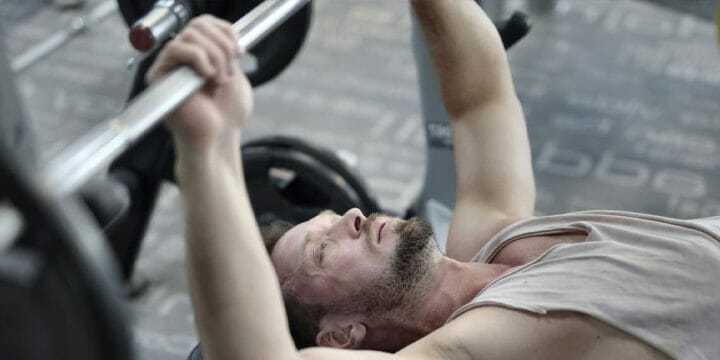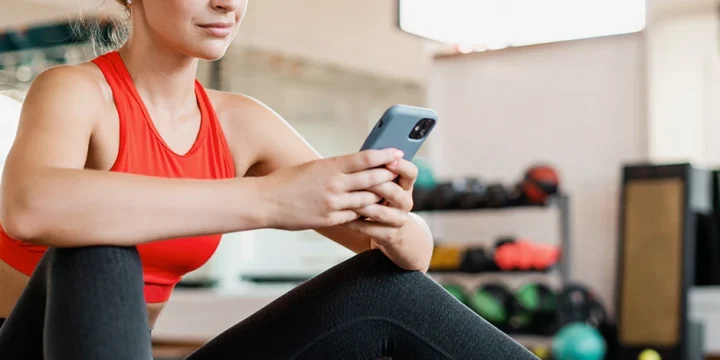In my many years of training and coaching others, I have noticed a strong correlation between abdominal exercises and cramping.
I didn’t buy the common advice to “stay hydrated” to avoid the ab muscles cramping, as it never actually worked for my clients or me.
So, I spoke to a physical therapist and our resident dietician and did my own research on top of that to get to the bottom of this issue.
Quick Summary
- Stomach cramps during ab workouts are typically caused by overexertion or eating too close to the exercise session.
- Effective relief for stomach cramps can be found through rest, targeted massage, and temperature therapy.
- Dehydration, while commonly thought to cause cramps, requires a significant loss of body weight during exercise to be a likely factor, according to ACSM's guidelines.
- In my experience, ensuring a proper warm-up and avoiding large meals before workouts are key to preventing abdominal cramps.
What Causes Stomach Cramps When Working Out?

Stomach cramps during workouts are often due to overexertion or eating too soon before exercising.
Experiencing abdominal cramps during ab exercises could be due to the engagement of abdominal muscles, exercise science, body temperature changes, or it might help to gently massage the affected area for relief.
While we often focus on the physical elements of abdominal cramps, it's essential to consider the psychological aspects as well. Stress and anxiety can exacerbate the sensation of pain, making it crucial to incorporate mental exercises and relaxation techniques to manage cramps effectively.
Let’s dive into a bit more detail.
Overworking or Overstretching the Abdominal Muscles
In my journey, I’ve encountered that wrenching pain stemming from muscle strains and overuse more times than I care to admit. I've seen this in new clients who usually overdo their first set of ab exercises.
That’s not to say ab cramps don’t affect experienced lifters. They often experience abdominal pain from strenuous and frequent exercise (especially crunches and sit-ups).
I often feel sore after workouts, a sign of muscles being used intensely. According to the National Library of Medicine, this soreness, known as Delayed Onset Muscle Soreness (DOMS), indicates muscle growth and increased physical capabilities [1].
Eating or Drinking Before Working Out

Eating and drinking heavily before exercise increases the likelihood of stomach pain during a workout.
When I told this to my clients, they brought up the topic of dehydration. While it’s true dehydration causes you to cramp, there aren’t any significant findings to prove it.
According to a study in ACSM's Health and Fitness Journal, dehydration is defined as exercise-related weight loss greater than 2% of your body weight [2]. In other words, you’d have to be extremely dehydrated to experience cramping.
“If you have put too much fluid or food in your stomach, you can't get a large breath. If your levels of sodium, potassium, and calcium are off-kilter, that could contribute to stomach cramps, too.”
- Jeff Galloway, American Olympian
What Are the Best Ways to Relieve Symptoms?

Some of the best ways to relieve symptoms of stomach cramps are rest, massage, heat and cold exposure, and some medication. Let’s explore these further.
Stop Exercising and Massage the Area of Pain
I remember the intense cramps that would seize my muscles mid-workout. The pain was unbearable until I learned the art of pausing, breathing deeply, and gently stretching and massaging the afflicted area, a technique that has since become my immediate go-to remedy.
For immediate cramp relief, press into the muscle with two fingers and breathe deeply for at least 10 seconds.
Apply Heat
Heat application can relax tight muscles and improve blood flow, helping to ease spasms.
Icing the Abs
I remember nights when using an ice pack was my main form of relief, a routine I repeated every few hours. This practice was not only for pain relief but also served as a time to reflect on the body's natural healing process when provided with appropriate care.
Prescription Medication
If cramps persist, consult a doctor as they may be symptomatic of another issue, and medication may be necessary.
How To Prevent Stomach Cramps When Working Out?

These are five measures I take to prevent stomach cramps when working out.
Lightening Workout Load
If you haven't worked on your abs for a while, I highly recommend you lighten the load on your abdominal exercises. This also applies to exercises that require strong core engagement (like squats and deadlifts).
I recall the excitement of getting back into my workout routine and the urge to immediately start high-intensity exercises. However, experience, often gained from previous errors, has taught me the importance of gradually increasing intensity, respecting the process, and acknowledging every small improvement in strength.
Light Pre-Workout Stretches
There were times when I was too eager and skipped the warm-up, which often led to muscle strain. Now, I start each session with a routine of light cardio and stretching, acknowledging the body's need for proper preparation and care.
Pre-workout stretching and cardio can enhance flexibility and reduce the risk of spasms.
Limit Consumption of High-Fiber Foods
A pre-workout supplement can be a better option than eating before exercise to enhance performance without discomfort.
Your diet plays a pivotal role in how your body responds to abdominal exercises. Consuming certain foods or large meals before workouts can lead to discomfort and cramps.
Consume Electrolytes
I recall workouts being affected by an unexpected issue - electrolyte imbalance. Learning that something as basic as sodium could have such a significant impact on my body was an enlightening experience [3].
Consume electrolyte-rich food and drink an hour before you exercise. Try bananas, sports drinks, nuts, potatoes, and milk [4].
Related Articles:
FAQs
What Should I Do If My Muscle Cramps Don’t Stop?
If your muscle cramps don’t stop, then go see a physician immediately. Your stomach pain might be due to other symptoms.
What Can I Eat To Relieve Cramps in My Abdominal Muscles?
To relieve cramps in your abdominal muscles, eat bland foods that are gentle on the stomach, like bananas, rice, applesauce, and toast. The easiest way to remember these foods is with the acronym BRAT.
Experiencing muscle cramps or ab cramps during ab exercises might be related to the engagement of stomach muscles, and replenish electrolytes could help alleviate stomach problems.
Should I Avoid Caffeine to Prevent Ab Cramps?
No, you need not avoid caffeine to prevent ab cramps. Although caffeine consumption may cause you to urinate, it does not dangerously dehydrate your body.
References
- https://pubmed.ncbi.nlm.nih.gov/12617692/
- https://journals.lww.com/acsm-healthfitness/Fulltext/2013/07000/Exercise_and_Fluid_Replacement__Brought_to_you_by.3.aspx
- https://www.ncbi.nlm.nih.gov/pmc/articles/PMC1150229/
- https://www.medicalnewstoday.com/articles/electrolytes-food
About The Author
You May Also Like






